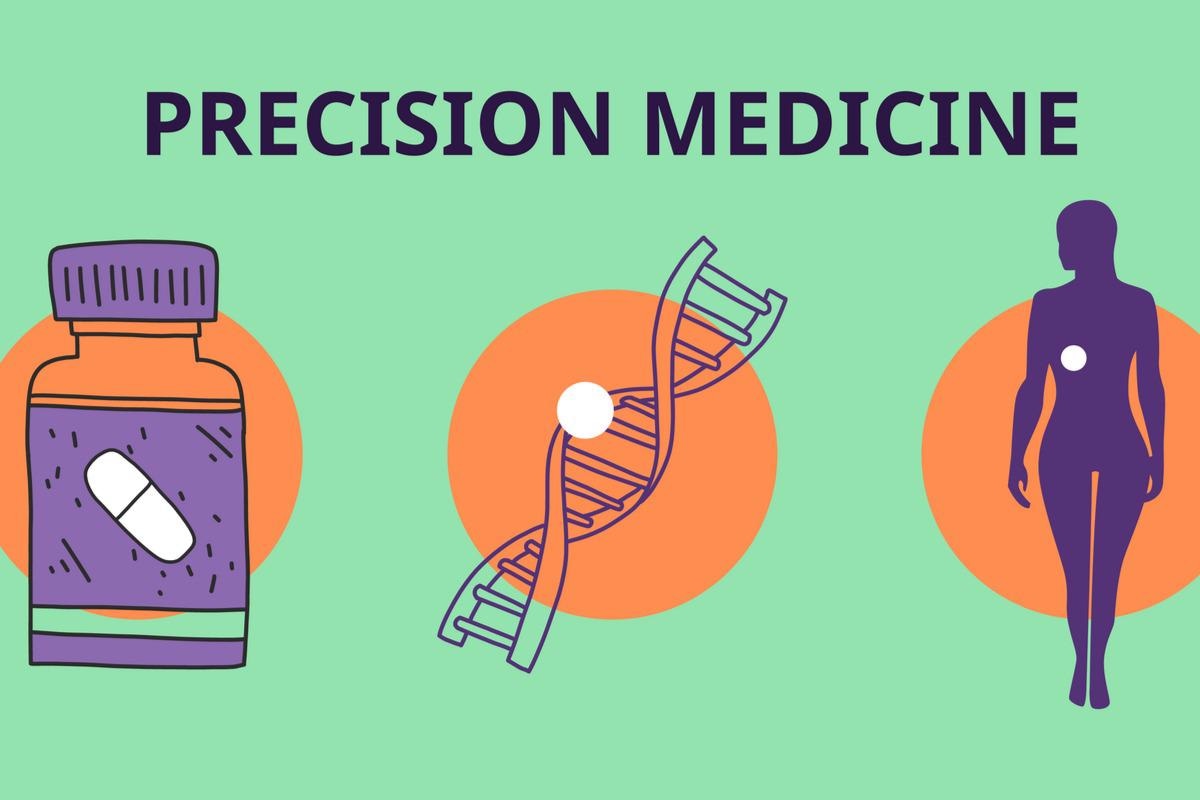Introduction
Precision medicine targets
How does precision medicine work?
Conclusion
References
Further Reading
Precision medicine is the new term for personalized medicine. Sounds simple, but is it? The latter term began to slide out of favor once President Obama introduced the Precision Medicine Initiative in 2015.

Image Credit: PopTika/Shutterstock.com
Introduction
Healthcare providers have always been anxious to make their treatments as effective and safe as possible for the individual patient. Towards this end, it may be necessary to tweak dosages, schedules, combinations, and types of drugs. Careful observation, recording, and sharing of the effects of these protocols on their patients will help others treat their patients better and spur others to improve upon these results.
One scientist reports, "One key criticism of evidence-based medicine is that even efficacious therapies benefit only a minority of patients to whom they are administered, but all treated patients are exposed to the costs and potential harms of those therapies." This is because randomized controlled trials detect small differences in the outcome. Still, the result is that the approved therapies are prescribed for all eligible patients, irrespective of their significantly different clinical condition compared to the trial participants. This leads to uncertainty about the actual effect of the medication.
Personalized treatment formerly depended on factors like the patient's age, gender, decision-making process, availability of resources, and level of mobility, as well as the presence of comorbidities. Personalized medicine focuses on adjusting treatment to individual differences rather than the genetic polymorphisms of lesser importance.
Personalized medicine is more in line with traditional physician values such as developing rapport, gaining trust, clinical skills, and honoring the patient, whether by adapting treatment to the patient's values as well as the physician's own or by taking the patient's coping skills and social environment into account. A good relationship with the treating physician is itself an established source of healing, both psychologically and because it promotes early and accurate diagnosis as well as good treatment compliance.
Compliance has been shown to be key to effective, safe, and inexpensive treatments.
With precision medicine, in the ideal sense, this personalized approach is merely taken up a notch by using genomic data to determine which type of drug protocol will serve the patient best, depending on the individual's metabolism.
The aim has been to enhance effectiveness, the precision of action without off-target effects, and target accuracy. Today, it is the boast of modern medicine that "now, modern physicians and scientists are now able to take this mission far, far beyond the reach of their ancestors with the help of electronic health records, genetic testing, big data analytics, and supercomputing."
Conversely, precision medicine takes a more nuanced approach, considering both phenotypic and genotypic variations, to develop a treatment or prevention approach that can be applied to individuals and populations. Many, including the National Research Council, have expressed concern that "personalized medicine" suggests treatment or preventive measures developed uniquely for each patient, which is not the case.

Image Credit: Nik Symkin/Shutterstock.com
Precision medicine was pioneered by Archibald E. Garrod (1857–1936), who was fascinated by the variation in disease manifestations between different diseases and individuals. It uses molecular information to extract the maximum mileage out of diagnostic protocols by merging the impact of both environmental and genetic factors. Genetic, metabolic, and clinical data is used to build a fuller picture of the patient's biology to provide the standard treatment in a manner adapted to promote the greatest effectiveness while minimizing the risks.
"Precision medicine does not literally mean the creation of drugs or medical devices that are unique to a patient, but rather the ability to classify individuals into subpopulations that differ in their susceptibility to a particular disease…or in their response to a specific treatment." Using genetic tests, this technology examines the effect of a particular gene variant or mutation on the risk of a specific condition or the treatment of that condition.
The result is a tailored plan of treatment or prevention of a particular disease that involves specific recommendations on drug use, healthy habits to reduce the risk of disease, or beginning to screen for the disease earlier than usual. This may involve genetic testing/ genomic testing/ gene biomarkers, to mention just a few of the terms likely to be bandied about when talking about this approach.
The difference between the two lies in the concept of personalization as tailoring treatment to the genetic and environmental quirks of individual patients. The problem with this approach is the lack of correlation with improved health outcomes. Conversely, precision medicine may lead to achieving population-based interventions that are, by definition, not personalized.
Precision medicine targets
The current chief targets of personalized medicine include cancer, neurodegenerative illnesses, and uncommon genetic conditions. Millions of deaths occur due to cancer each year, and hundreds of billions of dollars are lost because of the lost workdays, wages, and caregiver needs.
The importance of preventive medicine is obvious, including changes in lifestyle such as quitting smoking, weight loss, switching to a healthy diet, and drinking in moderation, if at all. Genetic factors, however, play a significant role, including those that are common in some ethnic or familial groups.
Identifying high-risk patients, early detection, correct diagnosis, choosing the right treatment, and monitoring of treatment could all benefit from precision medicine. The same is the case with other incurable conditions that lead to debilitation and loss of patient independence. This has led to intensive research into precision medicine as the means to reduce the toll of such diseases.
For instance, some mutations are associated with certain cancers or with worse outcomes following the treatment of these conditions with certain drugs. This knowledge can be used to choose one drug rather than another for the individual patient.
If a person is found to have a familial history of a certain type of cancer, genetic testing could show the underlying gene variant that puts them at risk, leading to early screening and possibly preventive interventions.
In patients who already have cancer, the detection of certain gene variants may indicate a higher risk of spread, alerting the medical team to the need for more frequent follow-up. Similarly, some mutations make the tumor resistant to treatment with certain drugs that work for other patients. Precision medicine will help choose the right type of treatment for each patient based on the specific mutations present.
Some examples of cancers where this approach is already being used include colorectal, breast, lung, melanoma, stomach, and ovarian cancer.
How does precision medicine work?
With genetic testing becoming cheaper and more reliable, more data can be easily collected in large volumes from a more diverse patient set. By adjusting this with clinical and pharmaceutical information and applying socioeconomic information to the mix, it can be analyzed to provide identifiable patterns of effectiveness and the associated genetic variations.
What is Precision Medicine?
The patterns and variations that seem to be associated with successful treatment are then tested in clinical trials. If validated, it can then be used and integrated into best practice guidelines.
Much remains to be learned about this approach, and access is limited. Both testing and family history may not be adequate due to the current conditions, lack of guidelines, or the cost of testing or alternative treatment protocols.
Costs are a significant concern at present, what with genetic testing, increased screening tests, and targeted immunotherapies or other treatments. Regulation is another necessary hindrance to its widespread use, as every new technology must be scrutinized for its safety, benefit, cost-effectiveness, efficacy, and conformity to ethical standards.
However, most high-risk gene variants are low in frequency. At the same time, the most common conditions are multifactorial in origin, with preventable lifestyle causes that provide a much greater contribution to the risk. In some cases, the risk variants can be detected, but no specific interventions are available. Thirdly, detecting a risk variant may trigger expensive testing despite the small effect of the polymorphism on health, thus pushing up the cost rather than saving money.
Data security and patient privacy are other concerns that arise with precision medicine, even more than with personalized medicine, and require appropriate thought and investment for their protection. Better analytic systems and the production of powerful programs to predict outcomes and interactions between genetic, phenotypic, and clinical factors are also a must.
Also, public health should not be a casualty of the interest in precision medicine driven by 'omics, since interventions to alleviate poverty, isolation, and pollution as well as to prevent obesity, smoking, and addictions continue to provide the greatest bang for the buck at present.
Doctors will also have to update their knowledge of 'omics, including genetics, to understand and interpret the findings that form the basis of precision medicine.
Conclusion
It is important to remember that precision medicine is still in its infancy, as shown by its continued dependence on a highly simplified view of the human body and its functioning. One expert points out, "Moving forward, we believe that all innovations (including, but not limited to, precision diagnostic, prognostic or therapeutic strategies) should be properly evaluated in robust outcome-based studies. Only those innovations that improve the effectiveness, safety and efficiency of care should be embraced by clinicians and planners in health systems."
References
Further Reading
Last Updated: May 16, 2022